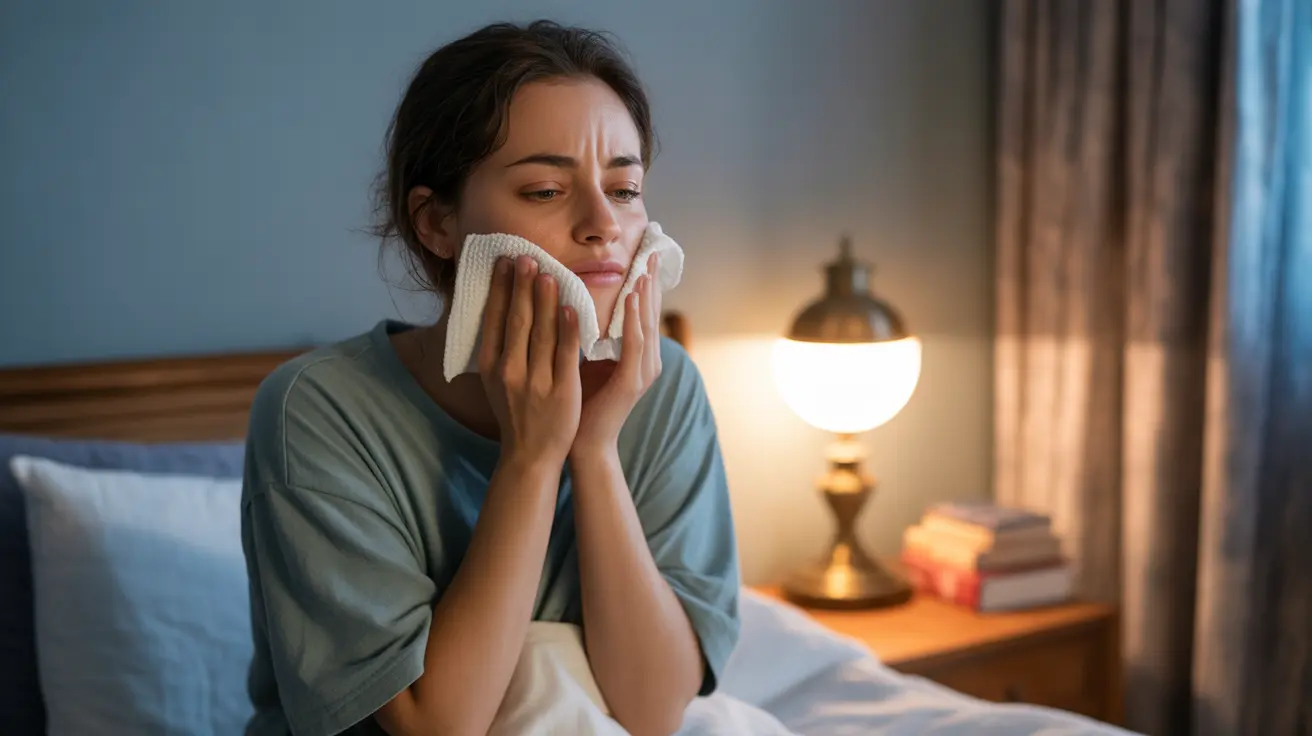Dealing with extreme tooth pain that prevents sleep can be an overwhelming experience. The throbbing discomfort not only disrupts your rest but can significantly impact your overall well-being. Understanding how to manage severe tooth pain effectively, especially during nighttime hours, is crucial for getting the relief you need.
This comprehensive guide explores proven methods to address nighttime tooth pain, from immediate relief strategies to long-term solutions, helping you reclaim restful sleep while addressing the underlying causes of your discomfort.
Understanding Why Tooth Pain Worsens at Night
Tooth pain often intensifies during the evening hours and while lying down due to several physiological factors. When you're in a horizontal position, increased blood flow to your head can amplify pressure in the affected area. Additionally, fewer distractions at night mean you're more likely to focus on the pain, making it seem more severe.
Immediate Relief Strategies for Nighttime Tooth Pain
Over-the-Counter Pain Management
Several readily available medications can help manage severe tooth pain:
- Ibuprofen (anti-inflammatory properties)
- Acetaminophen (pain relief)
- Oral numbing gels containing benzocaine
- Combination therapy (as recommended by healthcare providers)
Effective Home Remedies
Natural solutions can provide temporary relief while waiting for professional care:
- Cold compress application to the affected area
- Elevated head position while sleeping
- Salt water rinses
- Peppermint tea bags (slightly cooled)
- Clove oil (natural analgesic)
When to Seek Emergency Dental Care
Certain symptoms indicate the need for immediate professional attention:
- Severe, unrelenting pain lasting more than 24 hours
- Facial swelling or fever
- Signs of infection (pus, severe tenderness)
- Difficulty breathing or swallowing
- Trauma to the tooth or surrounding area
Preventive Measures for Future Protection
Implementing these practices can help prevent severe tooth pain:
- Regular dental check-ups (every 6 months)
- Proper oral hygiene routine
- Avoiding extremely hot or cold foods
- Using protective gear during sports
- Addressing teeth grinding or clenching
Frequently Asked Questions
What are the best home remedies to relieve extreme tooth pain at night so I can sleep?
The most effective home remedies include elevating your head while sleeping, applying a cold compress to the affected area, using over-the-counter oral numbing gels, and gently rinsing with warm salt water. These methods can help reduce inflammation and provide temporary pain relief.
Why does tooth pain often get worse when lying down or trying to sleep?
Tooth pain typically intensifies at night due to increased blood flow to the head when lying down, fewer distractions from the pain, and changes in fluid pressure within the tooth. This horizontal position can enhance inflammation and pressure in the affected area.
Which over-the-counter pain medications are safe and effective for managing severe toothache at night?
Ibuprofen and acetaminophen are generally safe and effective options. For maximum relief, these can sometimes be alternated under professional guidance. Oral numbing gels containing benzocaine can also provide temporary comfort.
When should I see a dentist if tooth pain is keeping me awake at night?
Seek immediate dental care if you experience severe pain lasting more than 24 hours, facial swelling, fever, signs of infection, or if the pain significantly impacts your ability to sleep or perform daily activities. These symptoms may indicate a serious condition requiring professional treatment.
How can I prevent extreme tooth pain and improve oral health to avoid sleepless nights?
Maintain excellent oral hygiene through regular brushing and flossing, attend routine dental check-ups, avoid sugary foods and beverages, use a protective mouthguard if you grind your teeth, and address dental issues promptly before they become severe enough to disturb your sleep.




